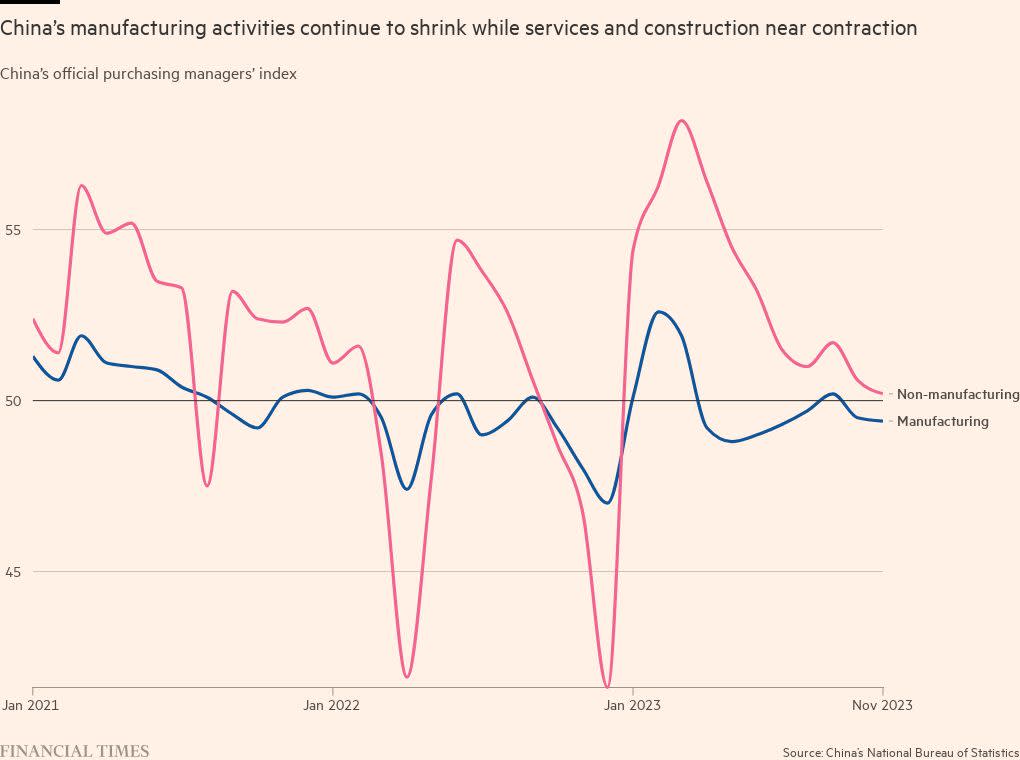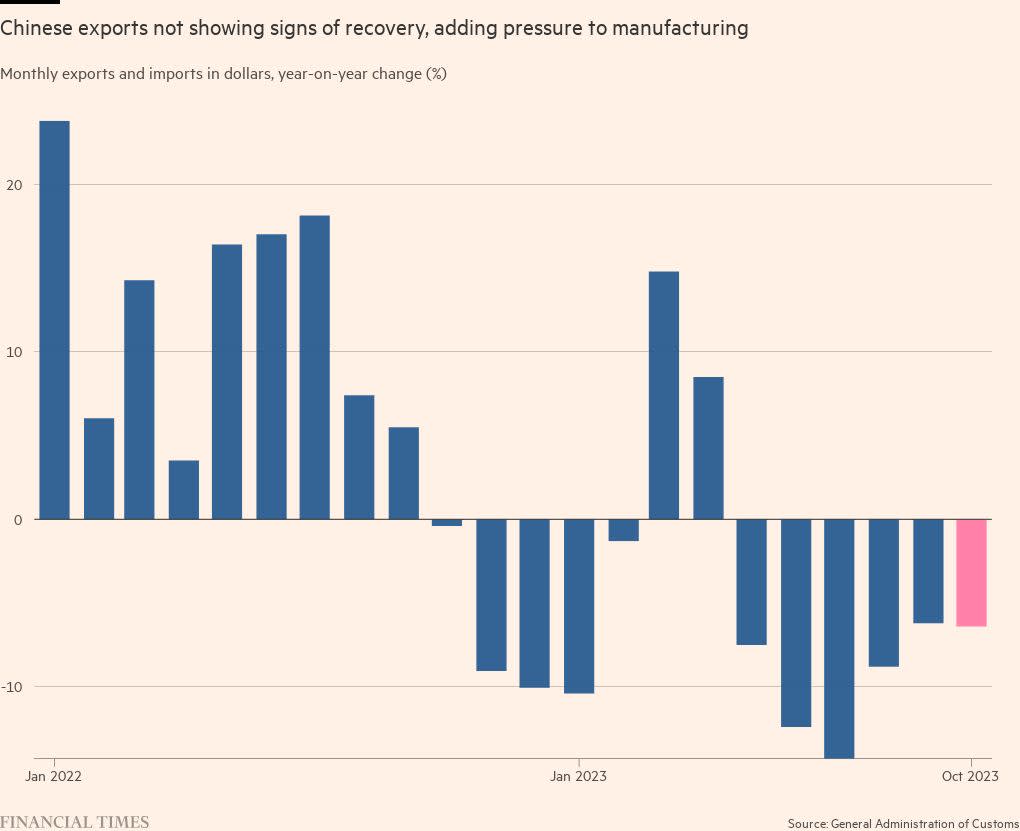Stay informed with free updates
Simply sign up to the Chinese economy myFT Digest — delivered directly to your inbox.
China’s manufacturing activity contracted for the second month in November, indicating weakening momentum in the world’s second-largest economy despite increased government efforts to boost growth.
The country’s official manufacturing purchasing managers’ index came in at 49.4 this month, worse than a median forecast of 49.7 in a Reuters poll and slightly below a reading of 49.5 in October. A reading below 50 marks contraction from the previous month.
The decline presents a challenge for policymakers, who are under pressure to tackle a slowdown in the country’s debt-stricken property sector and revitalise a recovery in the broader economy.
It also followed better than expected gross domestic product growth of 4.9 per cent year on year in the third quarter, which had raised hopes that China’s economy, slow to recover after the pandemic, was turning a corner.
The non-manufacturing PMI came in at 50.2, remaining in positive territory but lower than October’s 50.6, already the lowest for this year.
The weaker PMI data paints a picture of an economy that is losing momentum as it heads into 2024.
Profits at China’s industrial companies rose 2.7 per cent in October from a year earlier, official data released this week showed, slowing from 11.9 per cent in September and 17.2 per cent in August.
Authorities might need to provide further support to counter weak global demand into 2024, analysts said.
Nomura analysts said ahead of the PMI release they had expected a reading of 49.3 for November.
They said they expected the economy to “dip” again at the end of this year and into the “spring” of 2024, as a weakening property sector curbed growth.
External demand for Chinese goods is also expected to remain weak, while investment in green industries could peak.
“The pain of another dip may finally convince Beijing to play the role of lender of last resort to rescue some major troubled developers and fill the vast funding gap for building and delivering those presold homes,” Nomura said.




